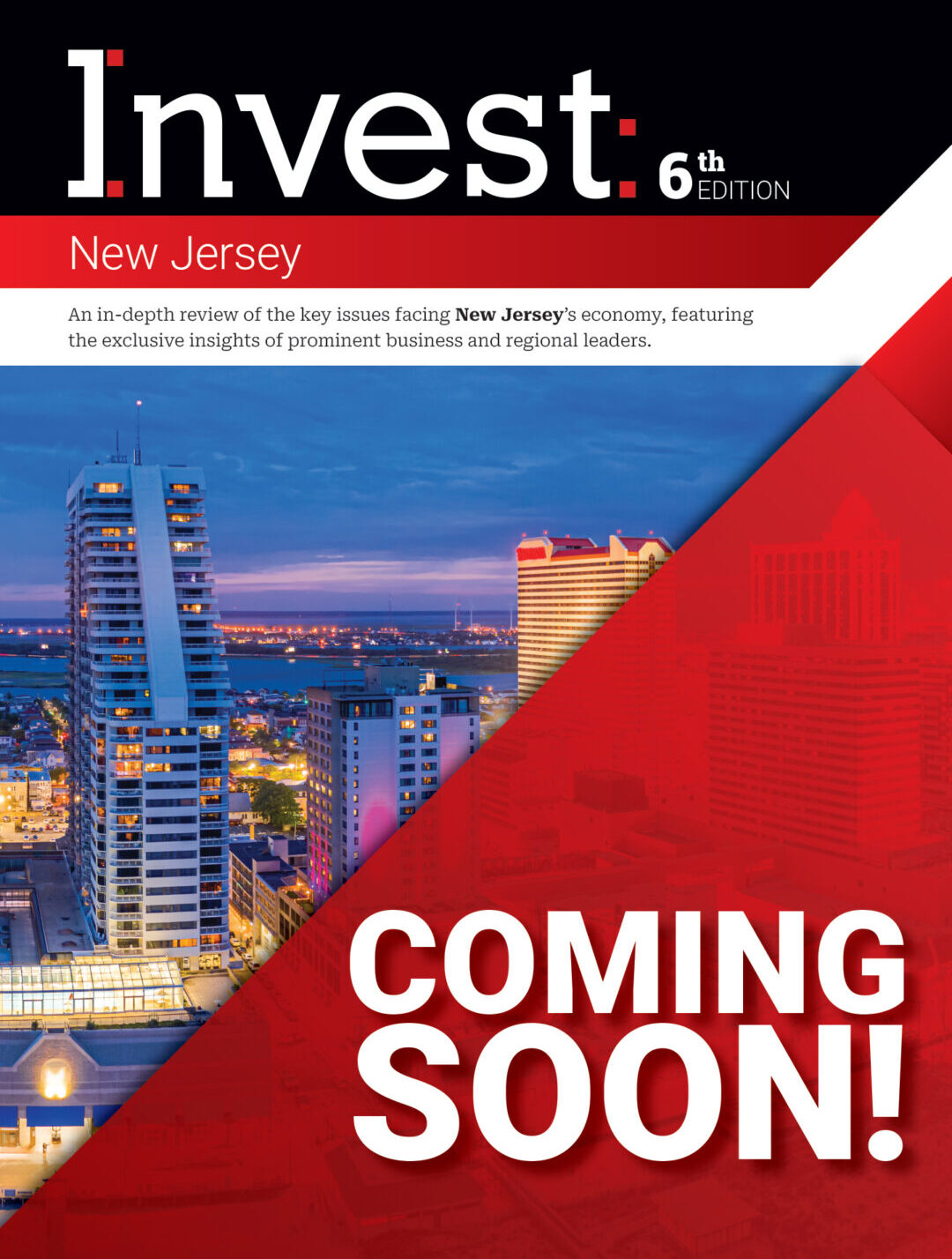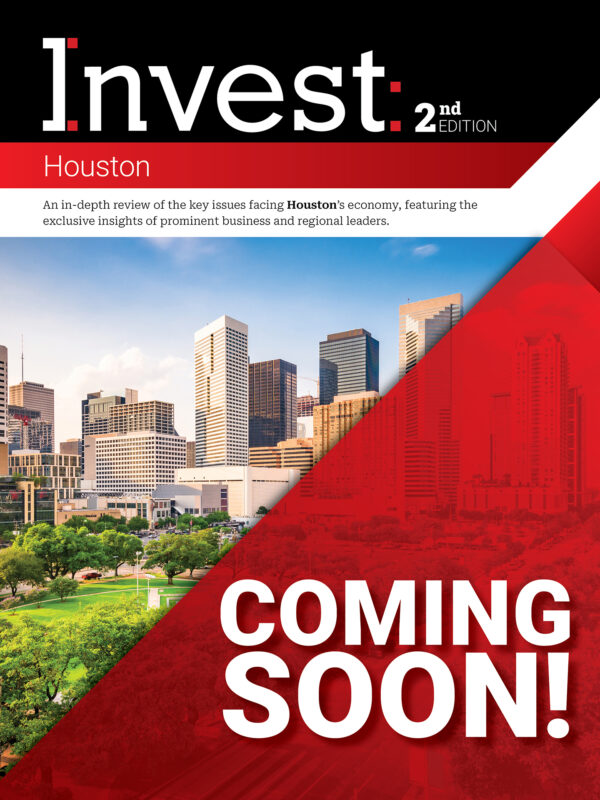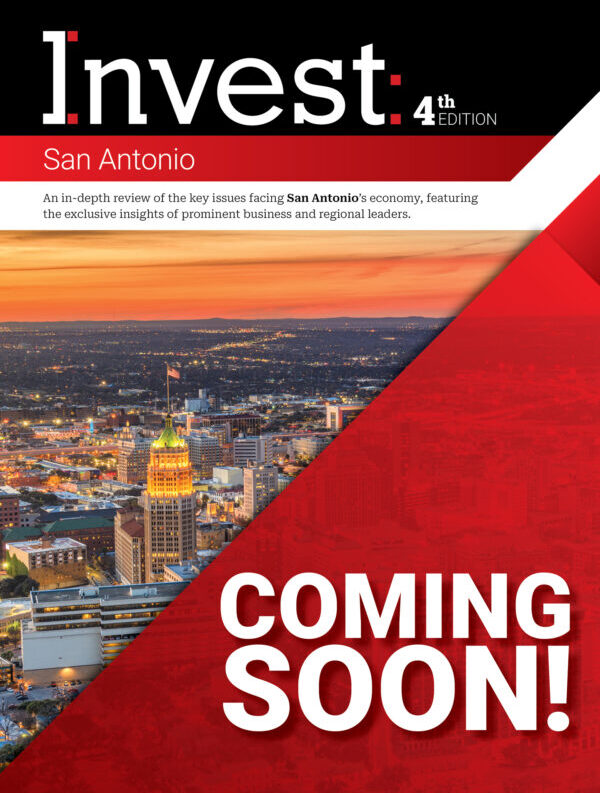Spotlight On: Michael Affuso, President & CEO, New Jersey Bankers Association
 June 2023 — Uncertainty is the word that defines the near future, Michael Affuso, president and CEO of the New Jersey Bankers Association, told Invest:. “I think we just have to wait and see where the economy is headed because there are these externalities that are well beyond America’s ability to control,” he said.
June 2023 — Uncertainty is the word that defines the near future, Michael Affuso, president and CEO of the New Jersey Bankers Association, told Invest:. “I think we just have to wait and see where the economy is headed because there are these externalities that are well beyond America’s ability to control,” he said.
How will higher interest rates impact the economy?
If you focus on housing, prices have increased dramatically during the past few years. I’m not sure if we’re seeing a top or at least a flattening of that curve but suffice it to say we’re not seeing it drop yet. We have seen the cost of borrowing increase dramatically, however. Interest rates are now hovering between 6 and 7 percent, which traditionally is low but when you’re in a world of 2.7% interest rates and that’s what people are used to when acquiring a home, 6% seems steep.
So, when you look at the fact that in the housing market, housing prices have not come down but the cost to borrow money has grown, you see this squeeze on affordability. At the same time, while there is a squeeze on affordability, you might not see the price action that you would expect, where prices would come down precipitously, and I think that’s the reason there’s a lack of supply. As a result, you don’t have as much inventory coming on the market.
There is also a little bit of erosion of demand for commercial lending, particularly in non-real estate-based loans, because consumer demand is a little tenuous. So, I don’t think you’re going to see rapid business expansion.
What do you expect in 2023?
In 2023, we have to look at where the economy is going. There are two externalities that we can’t control. We can’t control what happens in the Russian-Ukrainian conflict and we can’t control what’s going on in China. A month ago, there was concern about China invading Taiwan and the effect of that on the semiconductor industry. Now you see widespread unrest in China due to COVID lockdowns. China remains a wild card. I think we just have to wait and see where the economy is headed because there are these externalities that are well beyond America’s ability to control.
What are the most significant challenges your members are facing and how are you helping them overcome those?
Some of the smaller, more manageable challenges are to figure out ways to use new technology to leapfrog into the future. You’ve seen many, many people, including seniors, adopt the use of technology when it comes to banking. Because of the pandemic, folks who used to go to the bank are now taking pictures of checks. The evolution of technology and the deployment of that technology to benefit the customer is where we’re able to help because we’re able to provide cutting-edge service solutions to our bankers. In addition, banks are facing competition from the Fintech space that is often unregulated but appears to customers as perfectly similar to a bank. For example, there are billions of dollars parked in virtual wallets that are totally uninsured.
How has the demand for your different service offerings fluctuated over the last year?
We will always be the provider of information that is on the cutting edge. Now the cutting edge has changed. The cutting edge used to be marijuana, now it’s cryptocurrency and the implosion of cryptocurrency and how you deal with that. The demand for services is always changing along with economic trends.
For crypto, there was a push by some customers to create avenues to purchase crypto. Now, there might be a bit of hesitation by traditional bank customers to delve into crypto considering you’re looking at something like the FTX implosion. We have to ensure that whatever the next crypto news is, we can identify it and get it in front of our folks as soon as possible.
What is your assessment of M&A activity?
Banks need to gain scale and a lot of times the way to do that is to merge with other institutions. However, as interest rates rise, there is an increased interest rate risk. If you have a seven-year loan at 2% on your books that becomes a liability because the prevailing interest rate is significantly more than 7%. This spike in interest rates will affect M&A activity as purchaser institutions take a deep dive to understand what assets banks are holding and the quality of those assets.
How is inflation affecting the banking sector?
You have to conquer inflation because the economic erosion that inflation causes for people on all ends of the economic spectrum is staggering. If you’re a saver, if you’re an investor, if you are on the high end of the bell curve, it erodes your savings. If you were on the other end of the bell curve, your purchasing power shrinks significantly, and wages are just not going to keep up. Everyone loses in a high inflationary environment.
The Fed must conquer inflation. But it is not only monetary policy but also government spending. The government taxes 81 cents and spends a dollar. Our national debt, what each of us as taxpayers, federal taxpayers, owe on the national debt is over $200,000 on what is approaching $4 trillion. Those numbers are stupefying. Over the past 20 years, the last balanced budget was around 2000. So, it’s not just Fed policy that you have to take a look at.
What is your near-term outlook for the banking sector and the economy in New Jersey?
The New Jersey Business and Industry Association has surveyed what business owners believe the economy will hold and they’re skeptical. There’s a lot of uncertainty out there. We had the COVID omicron variant last winter. Who knows what version of COVID might rear its head next time or how the protests in China are destabilizing the Chinese government. There is also uncertainty because of the conflict in Ukraine. So, there are a lot of externalities right now. We can’t just look inwardly and say, well if the Fed just stops raising rates, everybody will be fine. There are many more externalities out there to consider.
For more information, visit:















